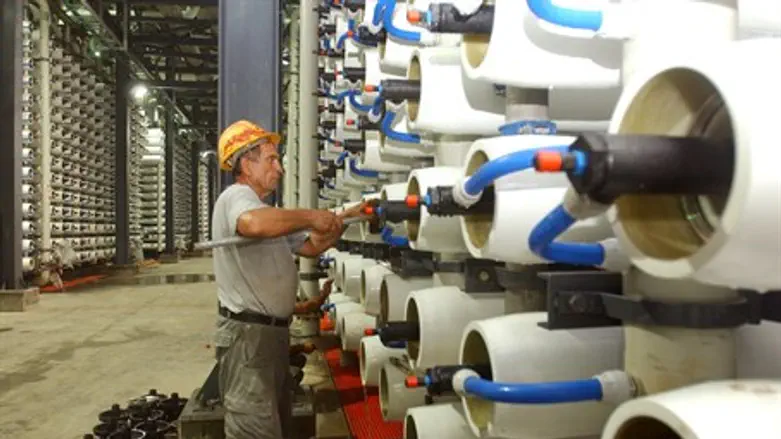
Israel's five desalination plants along its coast produce more than 600 cubic meters of water each year, and 75% of water used in homes is desalinated. Given the water shortages threatening much of the world, what could be the problem with this method?
The answer is: Heart disease and consequent higher death rates, caused by the lack of magnesium in desalinated water.
A group of researchers from Bar Ilan University and the Tel HaShomer Hospital checked 4,600 heart-disease patients who were hospitalized around the country. They divided the hospitals into two groups: Those in areas supplied with desalinated water, and those in areas supplied with natural water.
In the years before desalinated water was supplied, the research found, there was no significant difference between the death rates in the various hospitals. However, as Prof. Yonah Amitai explained, "in recent years, as desalinated water began to be widely used, there has been a higher death rate in hospitals in desalinated-water areas than in others."
Prof. Amitai, one of the researchers in the study, is a public health expert from Bar Ilan University.
Similarly, in 2013, magnesium levels in the blood of 211 patients in both areas were checked – and it was found that the levels were lower in the desalinated areas.
The connection between low magnesium and higher death rates corresponds with the working assumption that low consumption of magnesium is liable to increase fatal heart disease.
The dangers of desalinated water have been known for a while. Back in 2010, the Health Ministry produced a paper stating, "Israel is one of the world leaders in desalination, and though there is no required magnesium standard, we must tolerate no delay in adding magnesium to the treated water."
The increased use of desalinated water has now made the problem significantly more acute. Six years ago, 250 million cubic meters of water were treated, leading to an estimated 250 deaths. Today, as mentioned, 650 million cubic meters of water are desalinated annually in Israel.
Though it is hard to pinpoint which areas are supplied only with desalinated water at any given time, in general it can be said that areas closer to the coast receive more than other areas. Locations further away from the coast receive a mixture of desalinated and natural water.
The Water Authority responded to the results of the survey by stating, "The costs of adding magnesium to the drinking water are estimated at 300 to 350 million NIS a year, when actually 99% of the desalinated water is not used for drinking. As of now, it has not been proven that it is more effective to add magnesium to water than it is to add it to flour, for instance, or to distribute it to the populace in capsule form. Just this past week a tender was closed for the selection of an advisory company that will help us carry out the necessary research."
The Finance Ministry said, "An inter-ministerial committee is checking the issue of adding magnesium to water. After it completes its work, it will be decided whether adding magnesium to water is the best way to provide this mineral to the public."